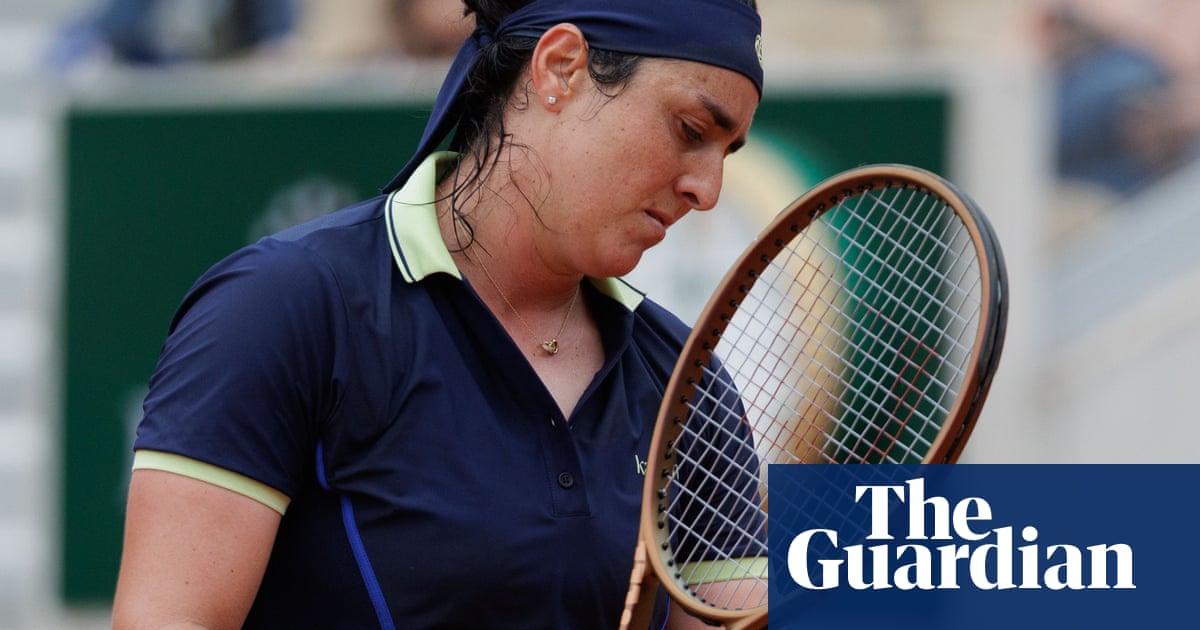Ons Jabeur has criticised Roland Garros for snubbing women’s tennis, saying: “I don’t think they have daughters.”
TheFrench Openintroduced night-session matches in 2021 but they have almost always been men’s singles matches. Last year all 11 prime-time TV slot matches featured men and the three so far this year have followed suit, while Wednesday night’s is the Danish 12th seed Holger Rune against the American world No 137 Emilio Nava.
Gilles Moretton, the president of the FrenchTennisFederation, caused controversy this week when he said the schedule is dictated by what will be “better for spectators”.
The Tunisian former Wimbledon runner-up Jabeur said: “It’s still sad that we are still seeing this. In Europe it’s unfortunate for women’s sports in general. Whoever is making the decision, I don’t think they have daughters, because I don’t think they want to treat their daughters like this.
“It’s a bit ironic. They don’t show women’s sport, they don’t show women’s tennis, and then they ask the question, ‘yeah, but mostly they watch men.’ Of course they watch men more because you show men more. Everything goes together. It’s a shame from the Federation, a shame from [Amazon] Prime, that they made such a contract like this. A lot of great players, they deserve to be there.
“One of the matches was Naomi [Osaka] and Paula [Badosa]. Such an unbelievable match. They were supposed to be there. Like last year, Iga [Swiatek] and Naomi was supposed to be there. A lot of great matches, they should have been there. I’m not sure what kind of fans he’s talking about. I know I’m a fan. I will watch that match.”
Jabeur suffered a first-round exit at Roland Garros on Tuesday when she was beaten in straight sets by Poland’s Magdalena Frech.
